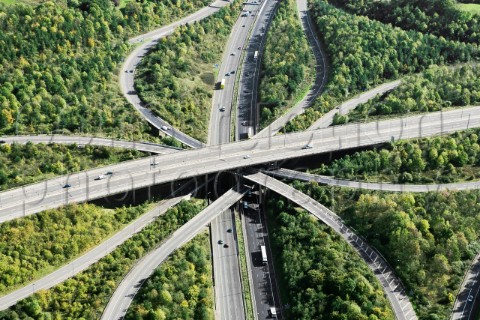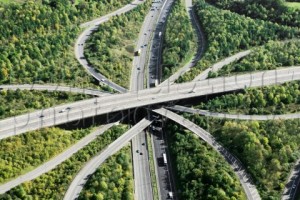Questions at the Intersection – by Lisa Larges
Life, of course, is always more complicated, than we’d like for it to be.
When we set about thinking through something, often we try to simplify it, to tease it apart one thread at a time – there’s the cause, here’s the effect. This can be a particular pitfall of academics. The paths of academia encourage scholars to burrow down, to parse, and to specialize. We miss the forest, but each tree has been thoroughly scrutinized, redacted, footnoted and reviewed.
Universities sprout an ever-expanding course offering of hyphen-studies. In 1985, I graduated with a degree in Women’s Studies as a matter of fact. In civic culture it’s called, sometimes dismissively, “issue politics.”
We know how we got here. In the university, we reacted against the centuries of Dead-White-Guy Studies that was everyone’s major, even though it may not have been printed on our diploma. In the political sphere we came to recognize the power that came with mobilizing around pressing needs of specific, highly focused sub-groups – childcare, equal pay, fare sentencing laws, equal housing, and accessible infrastructure. Sure, sometimes we formed coalitions, but we also knew that the fiercest advocates are those who are most directly impacted – those who have experienced sexual harassment, “driving while black”, being beaten in the alley for “looking gay,” coming to this country to do the work that those who were born here no longer seem to want to do.
But life isn’t single issue, and identity isn’t hyphenated. Justice is intersectional because life is relational, and identity is complex.
The stories with which Cynthia begins her essay point to the dangers of not addressing the intersections of justice work. As a white lesbian (my other hyphens include educated, disabled, non-trans, employed ….) her first story is one that is all too familiar to me.
There’s often been a kind of quiet headshaking among lgbt affirming white liberal church members at the apparent (I would say, mis-identified) homophobia of church members of color. Sometimes it gets expressed as a mystification: “You think they would understand what it is to be discriminated against. After all, the Bible was also used to justify racism!”
Sometimes we proffer paternalistic explanations: “It’s a cultural difference, “They are just more ‘tradition bound.’”
What doesn’t get acknowledged so much is our own contributions as white folks in this dynamic. We’re in the intersection too. We don’t ask the question of how our own racism has contributed to ongoing distrust, how issues about sexual orientation and gender identity have come to be defined by white folks, how same-gender loving and trans people of color may or may not name their experience differently, how playing race against sexual orientation not only discounts the reality of lgbt people of color, but also serves to reinforce both racism and heterosexism within the church and beyond. White lgbt Christians have a lot of work to do around owning our own racism. And the church, as a whole, has a lot of work to do in identifying the ways in which we have constructed a system that works to play marginalized communities against each other. “We can’t ordain the gays because the Koreans will leave,” is just another way of saying, “we want our heterosexism and our racism too”.
The questions at the intersection are different than those of the cul du sac. Providentially, we have an incarnational faith, which just might help us understand the beauty of our complexity. Maybe it’s crucial!



Thank you, Lisa, for this thoughtful reflection of intersecting identities and issues of justice! I am wondering what people’s thoughts are in terms of creating or finding community at these places of intersection. For instance, in undergrad, I was a member of a group founded by a young African American gay man. He felt like he didn’t quite belong anywhere, and this organization was an attempt to create community between communities and at this intersection. So, for people who occupy these places of intersection, people who are often shoved out of their communities because they are “not enough” of one thing or “too much” of another, how do we recover community, how do we break through the isolation that can result from this intersection of multiple, sometimes at-odds identities?
Patrick, this is an excellent point. I came up during a time when identity based politics defined movements. It seems to me that there’s been a real shift in this regard, especially among the next generation of lgbtq folks coming up — there’s no longer one group for lesbians, another for gay men, another for allies, etc. This is a positive development, I think, but the downside is that perhaps more than ever, people like the friend you mentioned may feel more isolated rather than less. Increasingly I’ve been thinking about the role of empathy in our work for social change and healing — not finding common ground, which is sympathy, and which has a place too, but seeking to know someone on their own terms, and through the multi-faceted, complex reality that shapes their identity.